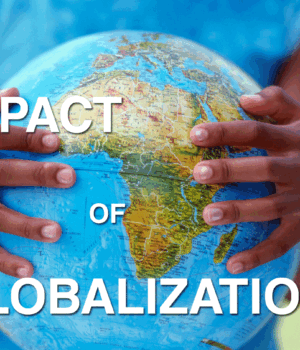Globalization has transformed many regions around the world, and the Northern region of Ghana is no exception. This dynamic process brings both benefits and challenges to local communities. Understanding the impact of globalization in this area is crucial for anyone interested in its development. In this article, we will explore how globalization affects various aspects of life in the Northern region, from the economy to culture and social structures.
You will learn about the positive changes that globalization can bring, such as increased trade opportunities and access to new technologies. However, we will also discuss the challenges, including cultural shifts and potential economic inequalities. By examining these factors, you can gain a balanced perspective on globalization’s overall impact on Northern Ghana.
Ultimately, this article aims to provide insight into the complexities of globalization in this unique region. You will discover the intricate ways in which global influences shape local realities, making it an important topic for travellers, researchers, and community members alike.
Impact of Globalization on the Northern Region
Globalization significantly influences the Northern Region of Ghana, affecting its economy, culture, and social structures. First, let’s look at the economic impact. Globalization opens doors for trade and investment. Local farmers now have access to larger markets. They can sell their products beyond their immediate communities. This expansion boosts incomes and encourages more agricultural production. Furthermore, foreign companies are increasingly investing in the region. These businesses create jobs and provide skills training for local workers. As a result, many families experience improved living standards and opportunities.

However, globalization also presents challenges. One major concern is cultural erosion. As global brands and media permeate local markets, traditional practices can fade. Younger generations may prioritize Western lifestyles over their cultural heritage. This shift can weaken community bonds and lead to a loss of identity. To combat this, many local leaders are promoting cultural events and education. By highlighting their traditions, they aim to preserve their unique identity in a rapidly changing world.
Social structures in Northern Ghana are also affected by globalization. Increased migration is one result of economic opportunities. Many young people leave their villages for urban centres in search of better jobs. While this can enhance their skills and income, it can also strain family ties and traditional support systems. Additionally, globalization can create disparities in wealth. Some individuals and communities thrive, while others struggle to keep up. This inequality can lead to social tensions and challenges for local governments.
The impact of globalization on the Northern region of Ghana is multifaceted. While it brings economic growth and new opportunities, it also poses challenges to cultural identity and social structures. Understanding these dynamics is essential for anyone interested in the region’s future. By embracing the benefits while addressing the challenges, the Northern region can navigate globalization effectively and maintain its rich heritage.
Read Also: 10 Amazing Benefits of Tourism to Local Communities in Northern Ghana
7 Interesting Facts About the Rich Culture of Northern Region








